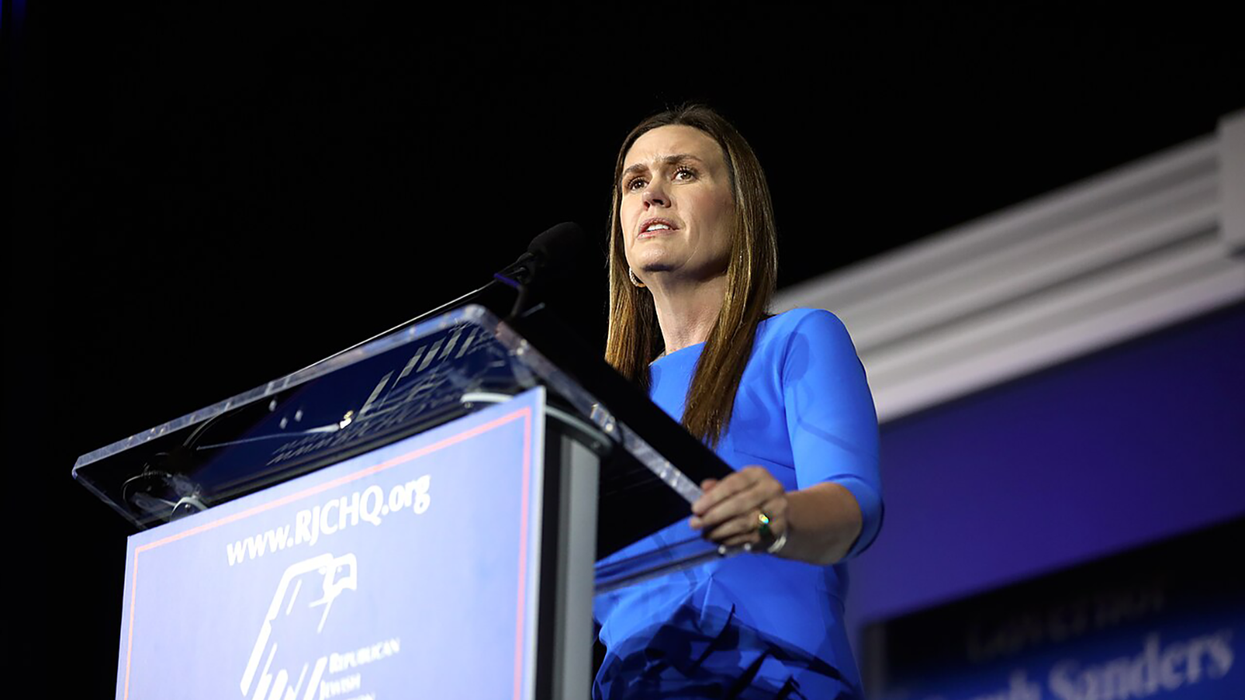The Arkansas Supreme Court denied Gov. Sarah Huckabee Sanders’ request to stay two lower court orders requiring her to set earlier special election dates for two legislative vacancies Wednesday evening.
The court also rejected a request by Attorney General Tim Griffin’s office to consolidate the two cases.
The identical orders, which did not explain the justices’ reasoning, granted the state’s motions for expedited consideration of its appeals of the orders handed down by two Pulaski County Circuit judges last month. Associate Justice Rhonda Wood would have granted the request for a faster briefing schedule, according to the order. Associate Justice Barbara Webb did not participate.
“I am disappointed by the rulings and will continue to vigorously defend the Governor and Secretary of State,” Attorney General Tim Griffin said via a spokesperson. Griffin’s office is representing Sanders and Secretary of State Cole Jester in both lawsuits.
Sanders set special elections for the Senate District 26 and House District 70 seats earlier this year, after Sen. Gary Stubblefield of Branch died and Rep. Carlton Wing of North Little Rock resigned to lead Arkansas PBS in September. However, her decision to set the special elections for June 2026 — after the Legislature’s fiscal session in April — immediately generated bipartisan criticism and lawsuits from SD 26 and HD 70 voters, as well as the Democratic Party of Arkansas, who said it would deprive them of representation for important legislative deliberations on issues like education and prison funding.
Under Arkansas law, the governor is required to schedule a special election date to fill a vacancy within 150 days unless she found it was “impracticable or unduly burdensome” to do so. Further, if the election couldn’t be held within 150 days, it had to be held on the earliest practicable date after that statutory deadline.
A June 9 election would be 252 days after Wing’s Sept. 30 resignation — or 152 days after the 150-day mark. The average number of days a special election has been held after the 150-day mark since 2011 is about 25 days, according to an unpublished Senate memo.
Judges in both lawsuits sided with the plaintiffs and ordered Sanders to schedule the elections earlier, finding that the June 2026 dates were impermissible under state law and the U.S. and Arkansas constitutions, though the reasoning varied between the cases. In the HD 70 case, Pulaski County Circuit Judge Shawn Johnson explicitly ordered Sanders to set the general special election for March 3, 2026. In the SD 26 case, Pulaski County Circuit Judge Patricia James said Sanders needed to set it “as soon as practicable” after the 150-day deadline, but did not specify when.
Sanders subsequently appealed those orders to the Arkansas Supreme Court, asking the justices to consolidate the cases into a single appeal and put the lower court decisions on hold.Arkansas Advocate is part of States Newsroom, a nonprofit news network supported by grants and a coalition of donors as a 501c(3) public charity. Arkansas Advocate maintains editorial independence. Contact Editor Sonny Albarado for questions: info@arkansasadvocate.com.


